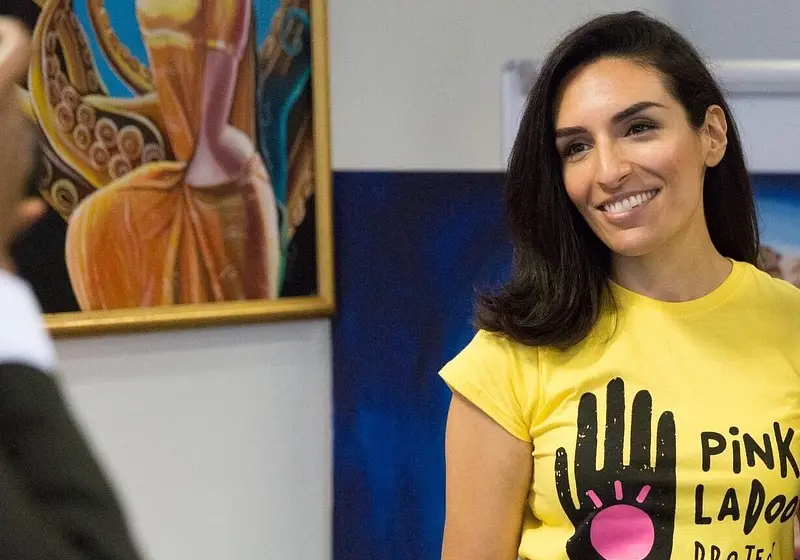Raj Kaur Khaira is a lawyer, activist, feminist, and now an author. The first book she published is called ‘Stories for South Asian Super Girls.’ The book consists of fifty inspiring stories about South-Asian women. It includes many women throughout history from Jhansi Ki Rani to Nadia Khan.
Raj has also featured on BBC Breakfast to discuss her incredible book. In addition to all of this, she is the founder of Pink Ladoo, which is an organization that celebrates female births. She has conquered law, writing, and the media, what will she do next? Keep on reading to get the inside scoop of her opinions concerning the book and a myriad of other things.
Let us slide into your dms 🥰
Get notified of top trending articles like this one every week! (we won't spam you)Does writing energize or exhaust you?
Raj: When I write for social media or I am writing a passage with a topic I am passionate about, writing does energize me and it motivates me. Although writing all the individual biographies for my book was a very tiring process as I had such little time. The whole concept and idea of my book made me exhilarated and inspired, however executing the task was extremely difficult.

Take the Quiz: Which Harry Potter Character Are You?
Find out which character matches your personality!
What is the main message of your book?
Raj: The main message of my book is that no matter what culture, religion, ethnicity or background you come from, you can do anything. Clearly, my book is geared towards young South-Asian women and how they have an immense amount of power and strength in modern society and have performed tasks of great courage throughout history. There is an abundance of South-Asian women who have conquered before us in a myriad of professions and roles such as warriors, intellectuals, leaders, and activists.
The media has different opinions and are not always informed about these mighty South-Asian women. They have important legacies that must be shared with the world.
If you could say anything to your younger self, what would you say?
Raj: This question is difficult because I try to tell young South-Asian girls the same things I wish I could have told myself. I think I would say, it is going to be hard however you must keep at it and that your failures or your perceived failures are not your fault. The jobs you may want to do could reject you, but it is not because you are not good enough. It may be because of different aspects people have to consider when it comes to their work and how you fit into it.
Which writers do you look up to?
Raj: One of the writers I look up to is, Sathnam Sanghera. He is also a close friend of mine. Sathnam is a journalist for The Times and he has published two books.
I find his writing style very specific and clear. I look up to him because he is an utterly synced and transparent writer. I also think he is extremely articulate in very few words, which may be why he is greatly popular on Twitter.
Other writers I admire are Charles Dickens and Angela Saini. I find that Dickens way of describing things is exceptional and his sense of humor is just supreme. Angela Saini (another friend of mine), writes scientific books and the way she writes is so interesting, it draws you into her work.
What are common traps for aspiring writers?
Raj: There are many but I think one of the main ones for aspiring writers is that you need a large publishing house for your book to be accepted. If you are an aspiring writer that wants to get published, choose a publisher who believes in your work. There is a huge trap where people get caught up in wanting huge publishing houses such as Penguin and Harper Collins.
However, it is not a competition and at the end of the day, any publisher will be able to get work onto shelves. Furthermore, once your book is published then you need to worry about marketing it regardless of how it is distributed. Another common trap for aspiring writers is that they could be forced to write about what they believe is favored by the general audience instead of what they genuinely believe in.
How did publishing your first book change your writing style?
Raj: It changed my writing style in the sense that I took word count very seriously. It has also made me think about what message I would like to portray in each piece of writing I do. I don’t think it has dramatically changed my writing style, although it makes me think about the value of my writing and what I want to achieve with the text I write.
When I write now, I take time making sure my ideas and achievements and perceived in the way that I would like. If I am trying to change someone’s perception of something, I try to convey it in a way that grasps my goal of sending a powerful message.
What is your definition of a feminist?
Raj: My definition of a feminist is those who believe in the equal and equitable treatment between men and women and non-binary people.
Raj’s book is currently the number one bestselling on Amazon UK in the Multicultural Biographies for Children department. Stories for South Asian Supergirls is also available to buy on Amazon Child Poverty Action Group, The Flying Seagull Project and Canadian Women's Foundation.
Here is Raj's Interview on BBC Breakfast:














